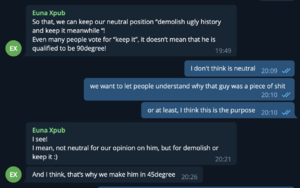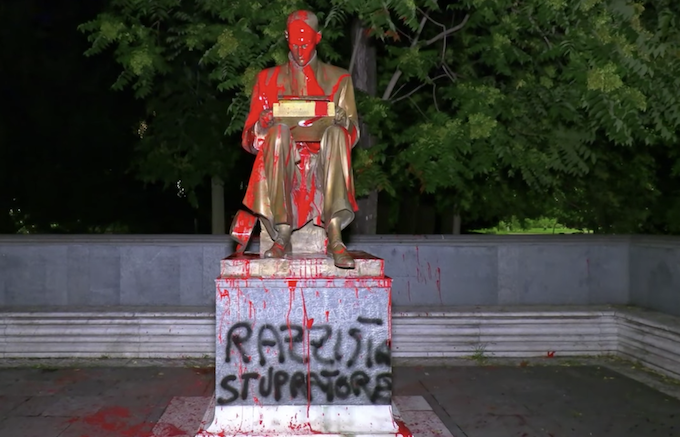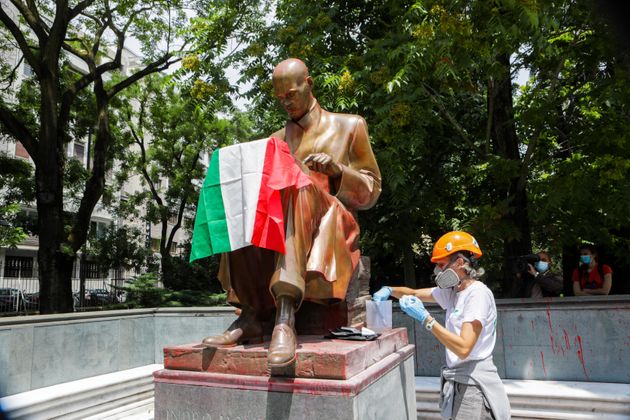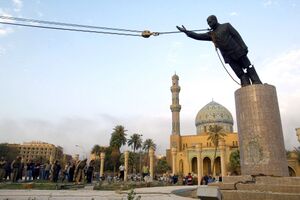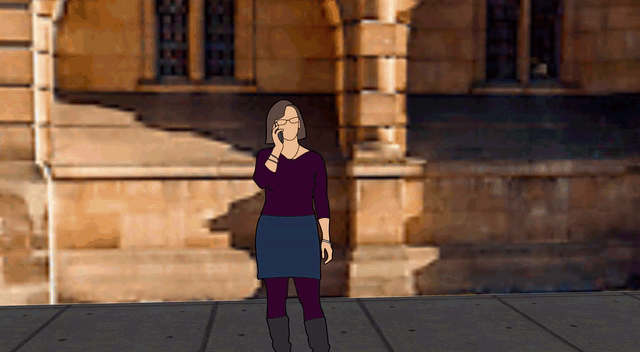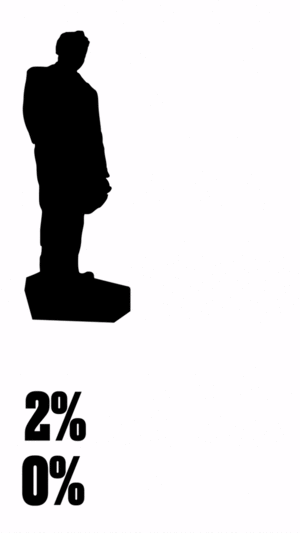Freeze
A short and faaaaaaaaaaaaaaaaaaaast briefing by ★ E ★ U ★ N ★ A ★, 🍭fə_erico [ Poni ]______ ,ᴋⷦeͤndͩaͣl 👀, Martin 
Processing of tension
Ok why this dude
"I contend that we are the first race in the world and that the more of the world we inhabit the better it is for the human race" [1]
Probably this is already enough.
Issue: what about history vs symbol
- Cancel Culture?
- Editing history?
- Hiding and beautifying our past?
- If we hide all our mistakes, how do we take responsibility and learn? And how far does this go?
- Whole cities have been constructed by people who have done questionable actions, so when do we stop removing things? What do we even end up with if everything is taken down?
Adding layers on history!
What should be more powerful? Do we delete or deconstruct it?
Does a statue exist as a way of glorifying someone, or/and act as a piece of historical information?
Modifying or Removing or letting it remain as it already is?
Anyway, even if we destroy a statue, we are not deleting history as we erase an HD.
Symbols could be destroyed and modified.
Statues are often symbols of oligarchic power, imperialism, colonialism and/or hegemony, they are monuments to genius.
If we destroy a statue, we are modifying a symbol adding layers to the history.[2]
There are also good statues, to generalize means refuse to inhabit complexity.
When does information become culture?
When does information become sculpture?
Designing conflicts
How can we establish a position about an issue? + how can we make others aware of the shit that this guy did?
- IF(we) destroy the statue, liberals and fascists will come to bother us;
- ELSE IF [before](we) must try to explain to everybody what that guy did and why a lot of people care about that issue.
- just say "you do not understand because you are stupid" is very classist.
- ELSE IF no-platforming.
"Adding a footnote to a statue?"
Detournment/hijacking
change the status of the statue!
- Hacking the statue
The elements that support the statue have also a lot of symbolic weight (i.e. look the fuckin hat + the fist)
What about the statue's sustainability / natural resistance to protest actions through its material :
Because of its position and materiality, the statue can appear untouchable The statue made of bronze or stone could almost be seen as if it was made to resist to protest actions, as it is a robust material that is not flexible in it's editing capabilities. (i.e. Montanelli's statue @ Milan)
- Change its arrogance (position?)!
What makes this statue arrogant (material, position, behaviour, etc?)
for now, unreachable height, places importance in levels and hierarchy.
The material also, too solid (seems like a part of the architecture), adding to the intense importance of the figure.
- Make it ugly!
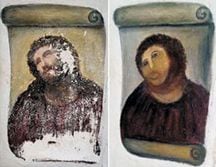
it's already an ugly statue!
how can we share with people what this guy did?
how can we share with people what this guy did?
how can we share with people what this guy did?
how can we share with people what this guy did?
how can we share with people what this guy did?
how can we share with people what this guy did?
-> inside (historical) ugliness or physical?
not dynamic but "fixed", static, it's always there
Making something communicative
Since we want to modify symbols and not history, what is our position?
When educating the people, how do we let people discover the history?
- Mobile application for tourist (a map that shows not only the nice things) -> a bit of a timid approach?
but with an application, we can give further info.
problem of the performative event
How can we give a "lesson" if we're not always present? The statue is stable and rigid, it will exist long after we do.
Proposals
- Use Google Maps as a platform to reveal more accurate historical contexts of statues.
(Still not a very bold idea)
strong idea:
- What about creating tension with the positioning of the statue?
An in-between of remaining in its current untouchable position and the alternative of being completely removed:
Suspending the statue at a 45° angle, as if it is falling or at least edging.
A symbol of the debate/tug of war between positions of support and protest. .
The precarity of opinion.
- Ivy or/and flowers or/and plants covering the facade behind the statue itself
- An accompanying informative supplement through a speculative poll
Free or interpretative, or oriented towards a more personal opinion about history linked onto the footnote of the statue.
strong interactive idea:
- What about, through a web-app, make a poll aims to modify the angle of the falling freezed statue?
For a determined time slot (i.e. a month) people can vote about the status of the statue, to determine its falling angle.
to be continued
To-Do List
- Eat the rich.
- Drink the middle class
- Interface navigation and graphic simulation sketches
Problems to solve
- How to contextualize before asking: "Do you want this statue to stand there or to be removed"
- For how long does this device/event/artwork/installation should exists?
- Should the voting count be refreshed regularily?
___
PAD: https://pad.xpub.nl/p/EuKeMaPo_-_Rhodes_Issue
- ↑ https://www.bbc.com/news/magazine-32131829
- ↑ This seems to be an Aristotelian syllogism

